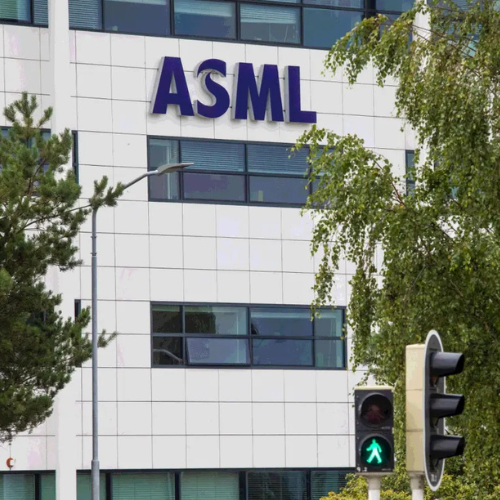A former employee of ASML, a leading company in the semiconductor industry, is facing serious charges of intellectual property (IP) theft and violating international sanctions. This case has caught the attention of both the tech world and law enforcement due to the sensitive nature of the stolen information and its potential to affect global security.
The Alleged Crime and How It Happened
The suspect, a 43-year-old man from Russia, worked at ASML, a company known for its advanced technology used in the production of microchips. These chips are essential for everything from smartphones to cars, and the technology behind them is highly valuable. The man, whose identity has not been fully revealed, is accused of stealing important design manuals related to photolithography, a process used in creating microchips. The stolen materials also included information about “Flip Chip” technology, which can have military applications.
Photolithography is a critical part of the process of creating microchips, and the stolen information could potentially be used for both civilian and military purposes. The fact that these documents were classified as “dual use” suggests that they have value in both commercial and military sectors, making the theft even more serious. ASML, along with its subsidiary Mapper and the Delft University of Technology, provided the suspect access to these documents due to his job at the company. The man is accused of unlawfully taking these documents and selling them to buyers in Russia, which violated European sanctions.
Dutch Decision to Impose ASML Sanctions Could Be a Painful Blow to China’s Chip Industry
The Financial Motive Behind the Theft
After taking the documents, the suspect allegedly sold them for at least 43,900 euros (about $46,440). The charge sheet claims that he knew the money he received was connected to illegal activities. This suggests that the theft wasn’t a one-time mistake, but rather part of a larger plan. According to the charges, he also engaged in money laundering—concealing the origins of the funds he received. This was not just a theft of information, but a deliberate attempt to profit from it in secret ways.
The case highlights the growing concern over the protection of sensitive intellectual property, especially in industries like semiconductor manufacturing, which are crucial for both economic and national security. The stolen data, if misused, could have far-reaching effects, especially given the strategic importance of the technologies involved. These technologies are used in products that power everything from everyday consumer electronics to military defense systems.
The Role of ASML and Its Response
ASML, which is based in the Netherlands, is one of the most important companies in the global semiconductor industry. It is famous for its photolithography machines, which are used by companies around the world to make microchips. The theft of valuable intellectual property from such a company is a significant blow, not just to ASML, but to the entire tech industry.
Resilient Defiance: China’s Semiconductor Giant Companies Brace Against US Sanctions
ASML’s Response and Legal Actions
The company was quick to respond to the incident. ASML confirmed that it was aware of the criminal case and stated that, in line with their policies, they had filed a formal complaint about the theft. However, the company did not provide further details about the ongoing investigation, as legal processes are still in motion. ASML’s reaction emphasizes the seriousness of the issue and how important it is for companies to safeguard their intellectual property.
This case also raises important questions about the security of intellectual property in high-tech industries and the potential risks involved in sharing sensitive information. For ASML, the theft of design documents is a major setback, especially considering how valuable and hard to produce their technology is. The company’s role in securing such technologies will likely be under greater scrutiny as the investigation progresses.
Global Security Concerns
This situation comes at a time when there are increasing concerns about global security, particularly the protection of sensitive technologies. The involvement of foreign buyers, especially from countries under sanctions, adds another layer of complexity to the case. The suspect’s actions are not just a violation of ASML’s rights, but also a breach of international laws designed to prevent the flow of sensitive technologies to certain nations.
The case has drawn attention to how serious the theft of intellectual property can be, not just for the companies involved, but for global security. Intellectual property theft is becoming a growing concern, and it highlights the need for businesses to be vigilant in protecting their innovations and technologies from falling into the wrong hands. The legal process surrounding this case will likely continue for some time, as both ASML and the authorities work to uncover the full extent of the alleged crimes.


